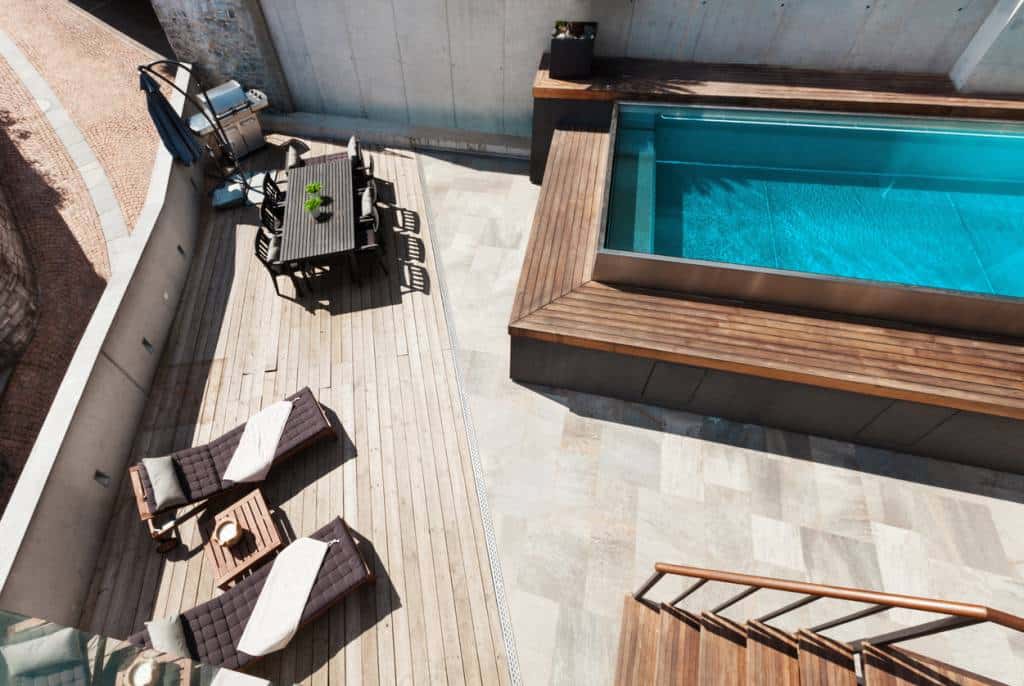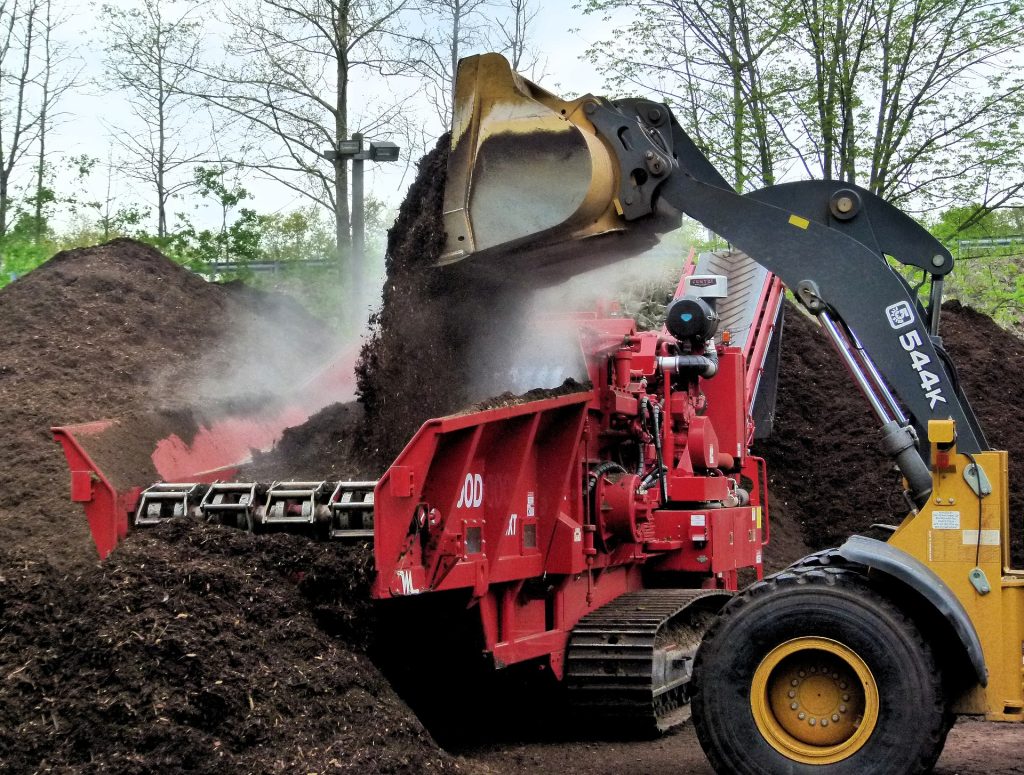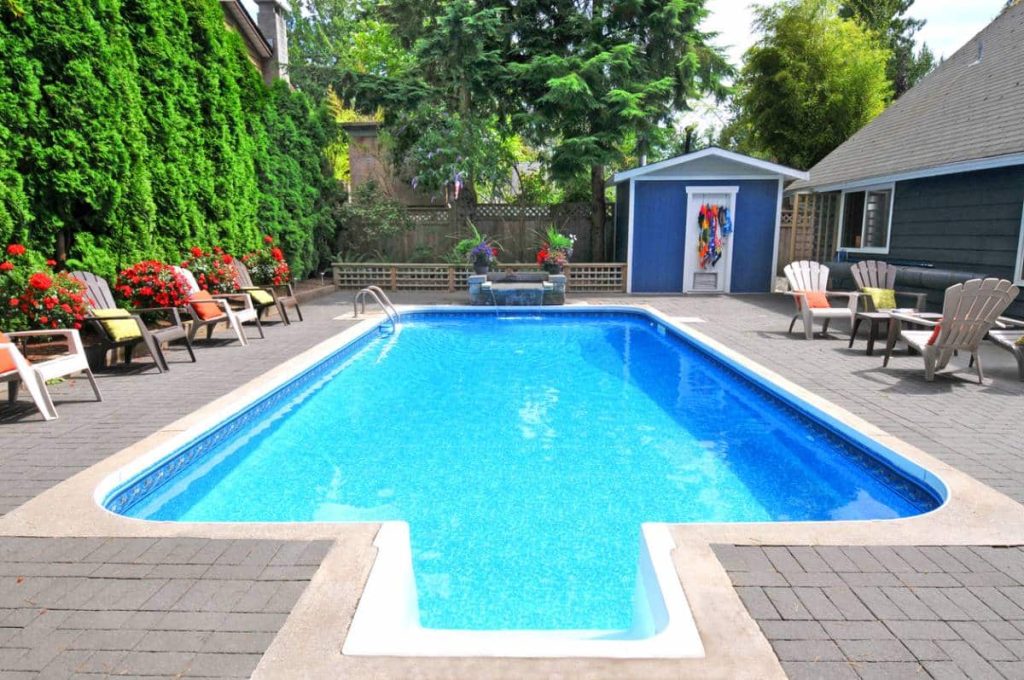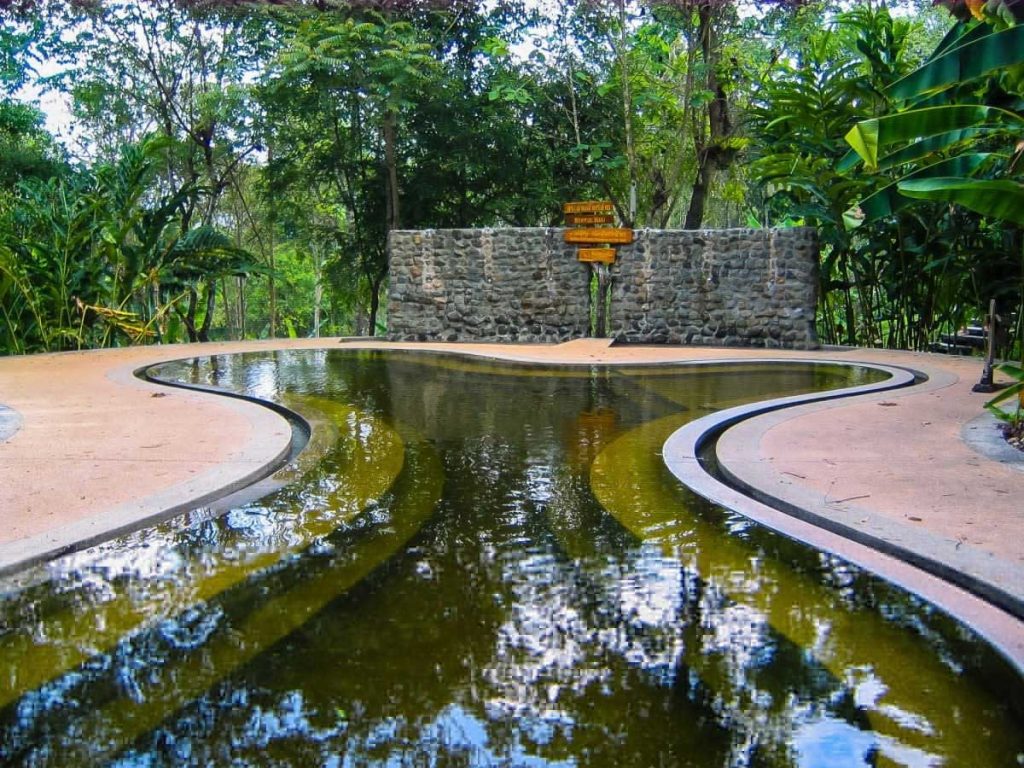Above ground, buried or semi-buried, the installation of a wooden swimming pool in his residence is always welcome, especially in summer. It is indeed a corner of relaxation and pleasure very appreciated by these sunny times. However, like conventional swimming pools, private wooden swimming pools are also subject to certain regulations that are important to be aware of to avoid falling under the law. But precisely, what does the law say about this?
Summary
The prior declaration of work for your wooden swimming pool
Do you want to buy or have a wooden swimming pool built?
This is a very good option, wood is indeed a very suitable material for this type of construction: however, advice for the maintenance of a wooden swimming pool will be necessary to take care of your swimming pool and ensure its longevity. For the installation of your above-ground, in-ground or semi-in-ground wooden swimming pool, it may be necessary to declare your work to the town hall.
Above-ground wooden swimming pools
For small above-ground pools of less than 10m², the legislation allows you to carry out installation work without declaring your work to the town hall, unless you are in a protected area (near a historic monument or within the perimeter of a heritage site, classified site or pending of being…).
In addition, when its area is between 10 and 100 m², the legislation relating to above-ground swimming pools allows you to proceed without declaration of work, unless it is installed more than three months in the year (or 15 days in a protected area). If necessary, a declaration to the town hall is compulsory. You will need to fill in the Cerfa 13 703 * 06 form.

Furthermore, local planning rules (Plan Local d’Urbanisme or PLU) may impose more stringent restrictions. In addition, the town planning code requires you to leave a distance of three meters between your swimming pool and the limits of neighboring dwellings. In addition, there are the rules of joint ownership imposed by the legislation on swimming pools.
Wooden in-ground or semi-in-ground swimming pools
Like above-ground wooden swimming pools, you will not need to make a declaration of work if the pool area is less than 10 m2. Obviously, the situation changes when you are in a protected area. In contrast, between 10 and 100 m², a prior declaration is required. This statement is also sufficient if you plan to build a shelter no more than 1.80m in height to protect your pond.
Wooden swimming pool: the building permit
In some cases, the legislation on swimming pools requires you to file a building permit before starting your work. This concerns in particular wooden swimming pools of more than 100 m². It is the same for the construction of a shelter of more than 1.80 m. In this case, you will need to complete a Cerfa form n ° 13 406 * 06.
On the other hand, if the installation of your swimming pool is carried out inside your building without modifying its appearance, or in the case of non-permanent swimming pool enclosures, it is not necessary to file a building permit. . The latter’s instruction period is two months. After the approval of the town hall, you can then begin construction work on your private wooden swimming pool. Do not forget to send a declaration of opening of the building site to the town planning department of your municipality. For this purpose, you will need the Cerfa form n ° 13 407 * 03.
Likewise, for the filing of the permit, you will need an architect. It is certainly possible to do without this professional, but his help will be very precious in putting together the technical file that will support your request. All the parts you will need are listed in the Cerfa document provided for this purpose. In addition, the services of the architect are not limited to the filing of the building permit. You can also request it for your construction work.

Swimming pool safety, what does the law say?
Private pools, including wooden ones, are framed by a security law since January 2004. This requires that in-ground or semi-in-ground swimming pools be equipped with a system to guarantee the safety of the occupants and in particular to prevent the drowning of young children. For this purpose, you have the possibility to choose among these equipments:
- A safety blanket in accordance with standard NF P90-308
- An alarm certified NF P90-307
- A swimming pool enclosure certified NF P 90-309
- A swimming pool barrier compliant with standard NF P90-306
A swimming pool cover, for example, must be sturdy enough to hold the weight of a young child who accidentally steps in.
As for the alarm, it can be submerged or be on the outskirts. In the first case, it sounds when a child accidentally falls into the water. In the second case, it is triggered as soon as its sensors detect a presence in a certain perimeter. This helps prevent accidents.
Regarding the pool enclosure or the pool barrier, they both prevent intrusions around the pool. In the case of the barrier, the installation must be done at a reasonable distance from the pool to allow good circulation. For aesthetic reasons, it is generally preferable to opt for alarms instead of barriers. But it’s up to you to choose the system that suits you best. Of course, you can combine several of these systems to enhance the security of your private pool.
On the penalty side, you expose yourself to a fine of 45,000 euros if you do not comply with the requirements of the law on swimming pool safety.
Construction of your new wooden swimming pool: what about taxes?
In-ground or semi-in-ground wooden swimming pools cannot be moved. They thus constitute a dependency of your residence and make it possible to increase its real estate value. Housing tax and property tax are also based on the area of outbuildings. Thereby, you may see an increase in these taxes. On the other hand, natural or ecological wooden swimming pools (whose wood comes from maintained and renewed forests) are not subject to any taxation. They are indeed considered garden ornaments.
In addition, you have the obligation to notify the tax office on which you depend within 90 days of the completion of your work. In some cases, you may be granted a property tax exemption for two years.
Ultimately, whether they are above-ground, buried or semi-buried, private wooden swimming pools are subject to several regulations. These relate in particular to the work declarations to the town hall, the filing of building permits, security and taxes. Make sure you’re in good standing to avoid penalties.






